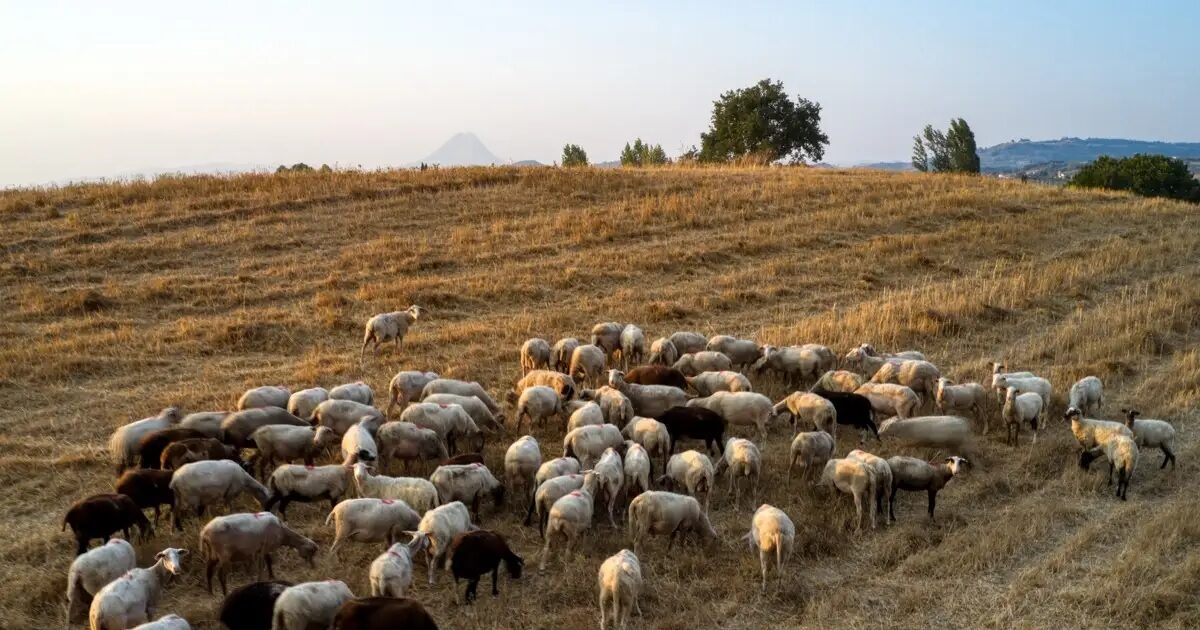Dramatic effects are expected on the Greek production of sheep and goat meat and milk (and its products, e.g. feta), but also on the state budget (immediately, but also in the medium term) from a possible 6-month lock down (!) in the sheep and goat pens in order to prevent the spread of smallpox.
The bell rang for the consequences of a coronavirus type lock down rang yesterday (22.10.25) the Minister of Rural Development, Kostas Tsiaras. It is for this that he recommended a relevant Committee, which will work “to the standards of the Scientific Committee that was set up during the corona virus period, in order to face a very big risk to our own livestock”. As for how serious this issue is from a fiscal point of view, he warned Deputy Prime Minister Kostis Hatzidakis the day before yesterday (21.10.25) stating that “the government monitors things, exhausts the possibilities and in any case one must not forget that there are also emergency situations for which the State must pay special attention. Like, for example, smallpox: if the problem gets worse, the State will be here to give the necessary support and compensation.”
The firstwell, it’s a hot issue what the state will need to pay in “necessary aid and compensation” to affected farmers, for impending mass killings of animals and fodder. So far, 350,000 sheep and goats have been killed, which represents 3.5% of the country’s total.
However, the state compensation, at its current level, for a killed animal replaces more or less half of the actual loss of income of a farmer… The other half will be borne by the farmer himself, which will have a catalytic negative effect on his consumption and therefore on the GDP of the country that relies on this size.
The incubation period of smallpox lasts for 6 months. This means that if a lockdown is declared in the stables, it will not be valid for only one month as was the case with the plague which incubates within 20 days. So the cost for government feed subsidies will be many times over! As the Minister of Rural Development, Mr. Tsiaras, said yesterday “The life time of the smallpox virus is at least 6 months. You understand that facing a 6-month lockdown is neither an easy task nor of small consequence. This is the reality”. Nevertheless, Mr. Tsiaras emphasized that “We don’t want to do a lockdown. That’s what I’m telling you. We won’t.”
And not only that, but (and this is the second problem!) the massive loss of income for livestock farmers – from a possible lock down – will lead to a de facto or de jure (that is, if the government itself decides, as in the case of natural disasters or the Covid 19 pandemic) a stoppage of payments to the tax and insurance funds, increasing the losses for the state budgetin addition to compensations for killed animals and fodder.
So the state will go to one situation… lose – lose, at the general government budget level, as at the same time it will have to increase public expenditure (for compensation and animal feed), it will lose revenue from contributions and taxes!
Furthermore, an increase in the prices of dairy products (feta, yogurt) combined with a decrease in their production, it would potentially hurt the profitability of Greek industries in the sector, which would lead to pressures on wages and jobs in it (and therefore a blow to the growth rates of the economy as a whole), but also to a possible reduction in tax revenues on them in 2026. This is it third problem.
The spread of the pandemic and a consequent increase in the number of deaths would further reduce milk production, leading to an increase in imports of goat and sheep milk (which would worsen the country’s trade balance) or even to a decrease in the production of dairy products and an increase in its prices and, in fact, at a time when the initiative of the Ministry of Development, suppliers and supermarkets is underway to reduce prices…
In other words, a new impetus will be given to food inflation as a whole (since the prices of not only products derived from sheep and goats will increase but also those of their substitutes, e.g. beef, pork but also dairy products derived from cows, etc.) above which this “beast” had been bent by a degree and had been replaced by “beast” of rent price inflation. This is the fourth problem.
The fifth problem will come from potential mid-term reduction in domestic sheep and goat meat and milk production, as a potential mass spread of smallpox would not only dramatically reduce this production in the short term, but would lead to a mass exit of Greek breeders from the sector.
